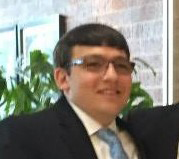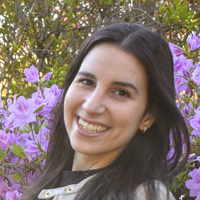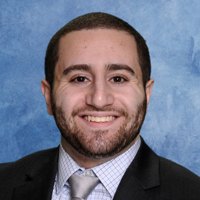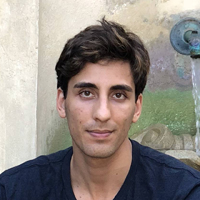Message From Our President

Dear Students, Faculty, Staff and Friends,
I am pleased to present to you this Guide to our plans for the upcoming fall semester and reopening of our campuses. In form and in content, this coming semester will be like no other. We will live differently, work differently and learn differently. But in its very difference rests its enormous power.
The mission of Yeshiva University is to enrich the moral, intellectual and spiritual development of each of our students, empowering them with the knowledge and abilities to become people of impact and leaders of tomorrow. Next year’s studies will be especially instrumental in shaping the course of our students’ lives. Character is formed and developed in times of deep adversity. This is the kind of teachable moment that Yeshiva University was made for. As such, we have developed an educational plan for next year that features a high-quality student experience and prioritizes personal growth during this Coronavirus era. Our students will be able to work through the difficulties, issues and opportunities posed by our COVID-19 era with our stellar rabbis and faculty, as well as their close friends and peers at Yeshiva.
To develop our plans for the fall, we have convened a Scenario Planning Task Force made up of representatives across the major areas of our campus. Their planning has been guided by the latest medical information, government directives, direct input from our rabbis, faculty and students, and best practices from industry and university leaders across the country. I am deeply thankful to our task force members and all who supported them for their tireless work in addressing the myriad details involved in bringing students back to campus and restarting our educational enterprise.
In concert with the recommendations from our task force, I am announcing today that our fall semester will reflect a hybrid model. It will allow many students to return in a careful way by incorporating online and virtual learning with on-campus classroom instruction. It also enables students who prefer to not be on campus to have a rich student experience by continuing their studies online and benefitting from a full range of online student services and extracurricular programs.
In bringing our students back to campus, safety is our first priority. Many aspects of campus life will change for this coming semester. Gatherings will be limited, larger courses will move completely online. Throughout campus everyone will need to adhere to our medical guidelines, including social distancing, wearing facemasks, and our testing and contact tracing policies. Due to our focus on minimizing risk, our undergraduate students will begin the first few weeks of the fall semester online and move onto the campus after the Jewish holidays. This schedule will limit the amount of back and forth travel for our students by concentrating the on-campus component of the fall semester to one consecutive segment.
Throughout our planning, we have used the analogy of a dimmer switch. Reopening our campuses will not be a simple binary, like an on/off light switch, but more like a dimmer in which we have the flexibility to scale backwards and forwards to properly respond as the health situation evolves. It is very possible that some plans could change, depending upon the progression of the virus and/or applicable state and local government guidance.
Before our semester begins, we will provide more updates reflecting our most current guidance. Please check our website, yu.edu/fall2020 for regular updates. We understand that even after reading through this guide, you might have many additional questions, so we will be posting an extensive FAQ section online as well. Additionally, we will also be holding community calls for faculty, students, staff and parents over the next couple of months.
Planning for the future during this moment has certainly been humbling. This Coronavirus has reminded us time and time again of the lessons from our Jewish tradition that we are not in full control of our circumstances. But our tradition also teaches us that we are in control of our response to our circumstances. Next semester will present significant challenges and changes. There will be some compromises and minor inconveniences--not every issue has a perfect solution. But faith and fortitude, mutual cooperation and resilience are essential life lessons that are accentuated during this period. And if we all commit to respond with graciousness, kindness, and love, we can transform new campus realities into profound life lessons for our future.
Deeply rooted in our Jewish values and forward focused in preparing for the careers and competencies of the future, we journey together with you, our Yeshiva University community, through these uncharted waters. Next year will be a formative year in the lives of our students, and together we will rise to the moment so that our students will emerge stronger and better prepared to be leaders of the world of tomorrow.
Best Wishes,
Ari Berman

 Jacob Stern ’20YC, from Edison, New Jersey, who also goes by Jake, is enrolled in the BA/MA in Mathematics Pathways Program at the
Jacob Stern ’20YC, from Edison, New Jersey, who also goes by Jake, is enrolled in the BA/MA in Mathematics Pathways Program at the  Shani Kahan ’21S, a biology major hailing from Great Neck, New York, is working with Dr. Anya Alayev ’03S, ’05E (MS), ’11E (PhD), clinical assistant professor of biology at Stern College for Women, on the discovery of a novel combination treatment for ERɑ-positive breast cancer patients that could be a game-changer for the treatment of the disease.
As she explains, her work involves using Indole-3-carbinol (I3C), a natural anti-carcinogenic compound found at high concentrations in vegetables in the Brassica family, such as broccoli, cauliflower and Brussels sprouts. Studies have shown that I3C suppresses the proliferation of tumor cells and induces apoptosis, the process of programmed cell death. As a result, I3C is a potential chemopreventive agent for certain cancers such as breast and cervical cancer.
As part of her research, Kahan is also studying the effects of rapamycin, an allosteric inhibitor of the mTORc1 signaling pathway, which is a metabolic signaling pathway often hyperactivated in certain cancer cells. While previous studies have shown that rapamycin maintains inhibition of mTORc1 signaling, its treatment alone has not shown to be effective on its own (as patients often experience relapse upon cessation of treatment).
Working together with Indole-3-carbinol (I3C), Kahan is of the opinion that the treatment may prove to be more successful. “Since I3C regulates apoptosis, in addition to mTORc1 signaling, the combination of rapamycin together with I3C is a novel and promising strategy in inducing apoptosis and maintaining mTORC1 pathway inhibition in ERɑ-positive breast cancers,” says Kahan.
Kahan is looking forward to fulfilling a lifelong aspiration of becoming a physician that assists those in need and dedicates time to exploring areas of uncertainty in medical science. She feels she has gained so much from the opportunity given to her as a Kressel Scholar and her work with Dr. Alayev. “One of my biggest goals in life is to contribute to society and make the world a better place,” says Kahan. “Through education and experience, my work on cancer research with Dr. Alayev allows me to see my dream transform into a reality.”
Shani Kahan ’21S, a biology major hailing from Great Neck, New York, is working with Dr. Anya Alayev ’03S, ’05E (MS), ’11E (PhD), clinical assistant professor of biology at Stern College for Women, on the discovery of a novel combination treatment for ERɑ-positive breast cancer patients that could be a game-changer for the treatment of the disease.
As she explains, her work involves using Indole-3-carbinol (I3C), a natural anti-carcinogenic compound found at high concentrations in vegetables in the Brassica family, such as broccoli, cauliflower and Brussels sprouts. Studies have shown that I3C suppresses the proliferation of tumor cells and induces apoptosis, the process of programmed cell death. As a result, I3C is a potential chemopreventive agent for certain cancers such as breast and cervical cancer.
As part of her research, Kahan is also studying the effects of rapamycin, an allosteric inhibitor of the mTORc1 signaling pathway, which is a metabolic signaling pathway often hyperactivated in certain cancer cells. While previous studies have shown that rapamycin maintains inhibition of mTORc1 signaling, its treatment alone has not shown to be effective on its own (as patients often experience relapse upon cessation of treatment).
Working together with Indole-3-carbinol (I3C), Kahan is of the opinion that the treatment may prove to be more successful. “Since I3C regulates apoptosis, in addition to mTORc1 signaling, the combination of rapamycin together with I3C is a novel and promising strategy in inducing apoptosis and maintaining mTORC1 pathway inhibition in ERɑ-positive breast cancers,” says Kahan.
Kahan is looking forward to fulfilling a lifelong aspiration of becoming a physician that assists those in need and dedicates time to exploring areas of uncertainty in medical science. She feels she has gained so much from the opportunity given to her as a Kressel Scholar and her work with Dr. Alayev. “One of my biggest goals in life is to contribute to society and make the world a better place,” says Kahan. “Through education and experience, my work on cancer research with Dr. Alayev allows me to see my dream transform into a reality.”
 Mordechai Walder ’20YC, a chemistry major from Chicago, Illinois, is researching protein binding interfaces with Dr. Raji Viswanathan, professor of chemistry and co-chair of the department of chemistry at Yeshiva College. These interfaces are a key area of scientific investigation because proteins regulate many biological processes integral to the survival, functioning, growth and evolution of organisms.
“Amino acid residues are the functional subunits of proteins, and a protein’s binding interface is a cluster of its residues that interact with another protein to form a complex structure,” explained Walder. To understand protein interactions at the molecular level, the residues that form the binding interface must be identified. Because some experimental methods for identifying interface residues are expensive and time-consuming, researchers such as Walder must use computational prediction methods to expedite their identification. These methods are used in such areas of protein research as the study of protein modifications, disease-causing protein mutations and the design of protein binding inhibitors.
He plans on taking a gap year after graduation and then pursuing a PhD in bioinformatics. “The Kressel Scholarship stipend allowed me to pursue my research project, and its research funding has given me the opportunity to attend conferences that have enriched my understanding of the various areas of protein research,” said Walder.
Mordechai Walder ’20YC, a chemistry major from Chicago, Illinois, is researching protein binding interfaces with Dr. Raji Viswanathan, professor of chemistry and co-chair of the department of chemistry at Yeshiva College. These interfaces are a key area of scientific investigation because proteins regulate many biological processes integral to the survival, functioning, growth and evolution of organisms.
“Amino acid residues are the functional subunits of proteins, and a protein’s binding interface is a cluster of its residues that interact with another protein to form a complex structure,” explained Walder. To understand protein interactions at the molecular level, the residues that form the binding interface must be identified. Because some experimental methods for identifying interface residues are expensive and time-consuming, researchers such as Walder must use computational prediction methods to expedite their identification. These methods are used in such areas of protein research as the study of protein modifications, disease-causing protein mutations and the design of protein binding inhibitors.
He plans on taking a gap year after graduation and then pursuing a PhD in bioinformatics. “The Kressel Scholarship stipend allowed me to pursue my research project, and its research funding has given me the opportunity to attend conferences that have enriched my understanding of the various areas of protein research,” said Walder.
 Bar Alluf ’20YC, a native of Kfar Saba, Israel, and a physics major, is conducting his Kressel research in network science, a fascinating field that attempts to describe and analyze complex systems to understand how information of any kind, such as social media news, diseases, rumors and so on, flow through a system of billions of connected components.
In his project, Resilience in Power-Law Networks and Electric Grids, he is collaborating with other scientists using a synthetic network that represents an electric grid to study the effects of cascades due to failure or attacks. Recently, he and his fellow researchers have been working on a computer simulation to understand the behavior of a network when its initial safety condition is overcome by a targeted attack.
“It is important to understand the scale of the network and the data sets we are dealing with. Analyzing so much data is a tedious process,” said Alluf, which is why he and his fellow researchers are working with Yeshiva University’s supercomputer. “We are striving to analyze the current data for exciting results and have already found out some patterns, but more work and conclusive evidence are needed.”
After graduation, Alluf intends to pursue a PhD in physics and is grateful for the opportunities given to him as a Kressel Scholar. “The Kressel Scholarship is a unique opportunity to focus my efforts on a relevant problem with complete support from the University and its faculty members,” said Alluf. “This intensive twelve-month working environment allowed me to acquire communication skills and research experience second to none, and I am assured it will be advantageous for my future carrier as a physicist.”
Bar Alluf ’20YC, a native of Kfar Saba, Israel, and a physics major, is conducting his Kressel research in network science, a fascinating field that attempts to describe and analyze complex systems to understand how information of any kind, such as social media news, diseases, rumors and so on, flow through a system of billions of connected components.
In his project, Resilience in Power-Law Networks and Electric Grids, he is collaborating with other scientists using a synthetic network that represents an electric grid to study the effects of cascades due to failure or attacks. Recently, he and his fellow researchers have been working on a computer simulation to understand the behavior of a network when its initial safety condition is overcome by a targeted attack.
“It is important to understand the scale of the network and the data sets we are dealing with. Analyzing so much data is a tedious process,” said Alluf, which is why he and his fellow researchers are working with Yeshiva University’s supercomputer. “We are striving to analyze the current data for exciting results and have already found out some patterns, but more work and conclusive evidence are needed.”
After graduation, Alluf intends to pursue a PhD in physics and is grateful for the opportunities given to him as a Kressel Scholar. “The Kressel Scholarship is a unique opportunity to focus my efforts on a relevant problem with complete support from the University and its faculty members,” said Alluf. “This intensive twelve-month working environment allowed me to acquire communication skills and research experience second to none, and I am assured it will be advantageous for my future carrier as a physicist.”